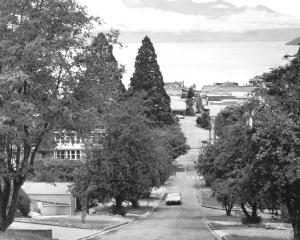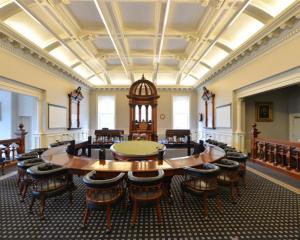
The Ministry of Business, Innovation and Employment’s (MBIE) tenancy compliance and investigations team conducted visits to 53 particular properties, of which "the majority" had some maintenance issues, and three properties had "multiple breaches" of the healthy homes legislation.
For most properties, issues included heatpumps not working/needing cleaning, windows needing repair and gutters needing repair and/or cleaning, some without outflow to stormwater.
There were also issues with ventilation in bathrooms, including no ventilation, or ventilation not working properly or in disrepair.
Some older stock required repair of wooden cladding and windowsills, while one larger multi-unit property needed fire safety procedures to be put in place.
Team leader Clare Lyons-Montgomery said it was disappointing, but in no way surprising.
The 53 properties were chosen from a list of 167 in the north Dunedin area.
"The criteria we used was based on where we could identify the highest risk, so the areas where the properties were most likely to be poorly maintained, potentially not up to healthy home standards.
"So we used intelligence data to actually narrow down the list to the key ones we wanted to focus on."
Ms Lyons-Montgomery said it should come as no surprise Castle St was particularly notorious.
"It’s one of those key student areas where we know a lot of accommodation provided to students is really not at the standard that it should be.
"No-one deserves this. Just because a property is in a particular area with a particular clientele doesn’t mean it shouldn’t meet basic standards," she said.
Once all the information was compiled, the MBIE would then follow up with landlords to address issues, or in some instances, begin the process of enforcement action.
She expected the information collection stage to take about three months, after which they would release all their findings to the public.
"In some ways, the visits we did do were really positive in that landlords had actually taken steps prior to our visits to improve compliance.
"Because they were engaged prior to our visits, a lot of landlords had done things like completing smoke alarm inspections and had left copies of healthy home statements with the students before we visited."
Otago University Students’ Association president Liam White said the results did not surprise him.
"The same flats have been sitting there for 20 to 30 years with some work around the edges, but not really addressing the core of the issue, which is the overall quality.
"And I just feel for those students. You know, we checked one flat and there was mushrooms and mould growing out of the walls, and it was dark, and it was dank, and it was just impossible to imagine even an animal living there, let alone a human being."
The OUSA was preparing a Dunedin-wide "flat survey" in order to gauge the issues across the entire student network, he said.
"I think it is a much more systemic problem that clearly the housing regulatory system doesn’t work because the burden is just completely on the renters.
"And for students, that means 18, 19-year-olds who don’t know better are facing the brunt of it."
Mr White said a "rental warrant of fitness" remained an aspirational idea for the city.












